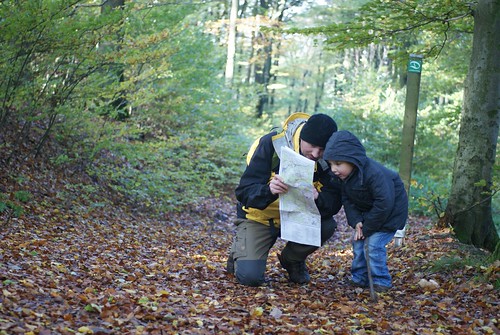In our rush to adopt all things digital we seldom pause to consider what we are discarding from our lives. Handwriting, navigating by map, calculating in your head, remembering facts, deep reading, dealing with silence and so on. Obsolete skills you may think but extremely useful if the digital alternative breaks down. For example, here in Sweden we have virtually achieved a cashless society and although cash still exists it is becoming extremely difficult to spend it. Public transport is almost completely cashless, many shops and restaurants refuse cash and even the banks don't want to touch the stuff. Many old and vulnerable people (asylum seekers and homeless people without bank accounts) are therefore completely marginalised, but that seems to be regarded as collateral damage in the rush towards a digital future. As a result, every step your take and every move you make are being stored and exploited. At the same time we are building an extremely dangerous vulnerability into our society. If there's a power or network connectivity failure, nothing works. You can't buy anything and there's no back-up.
I have been thinking about this for a long time and have consciously reverted to some old-school habits in an attempt to keep myself in touch with both worlds, trying to become functionally ambidextrous; able to handle both the digital and the analogue. This week I stumbled across a short interview with Kris De Decker, founder of Low-tech Magazine, ”Reconsider the thinking that everything should become digital”. He's a former tech journalist who has discovered the joys of low-tech. The magazine's slogan is "doubts on progress and technology" and questions the belief that technology can solve all our problems. It contains low-tech solutions to everyday problems and the website itself runs on a solar-powered server showing that you can be low-tech and still benefit from some aspects of the digital world. It also questions many technologies that we consider green such as electric cars, wind turbines and solar cells; they all rely on batteries and manufacturing processes that have a considerable footprint. But it's not about retreating into a cave and living off-grid, but reassessing our over-reliance on a technology that is becoming frighteningly vulnerable.
In the interview, De Decker explains why we shouldn't discard our old skills.
We also lose a lot of skills. As someone who doesn’t have a smartphone, I have noticed that I have become one of the few people who still knows how to navigate a city without staring at a screen. This makes us also very vulnerable. If our complex infrastructures falter, we are helpless. Just think about the infrastructure we need to do digital payments. Cash, on the other hand, is very resilient.Maybe we should all challenge ourselves now and again to go retro for a while. Try visiting a city and see how well you can survive without TripAdvisor, Google Maps, Uber etc. See the sights with a map and find restaurants by asking people. It works, but just in a different way. If we lose that ability we lose our resilience.
Then there's the issue of the environmental impact of technology. I have been working enthusiastically with webinars and digital conferences as an answer to the need to reduce the carbon footprint of frequent flying but we also need to realise that technology has en enormous impact too. All our devices and gigantic server halls that store our data are extremely damaging to the environment, not to mention the ever-growing mountain of electronic waste that is all too seldom recycled.
But of course digital technology is just as physical as any other technology. There is an enormous infrastructure behind the internet. The production of computer chips requires complex factories and lots of energy and other resources.I'm not going low-tech (yet) but I am attracted to the idea that we embrace digitalisation with more caution than before and dare to maintain contact with the skills that digitalisation is trying to make obsolete. We need to be able to work on both sides of the digital divide and develop a functional resilience. You never know when you may need to work out something for yourself again.

No comments:
Post a Comment
Note: Only a member of this blog may post a comment.